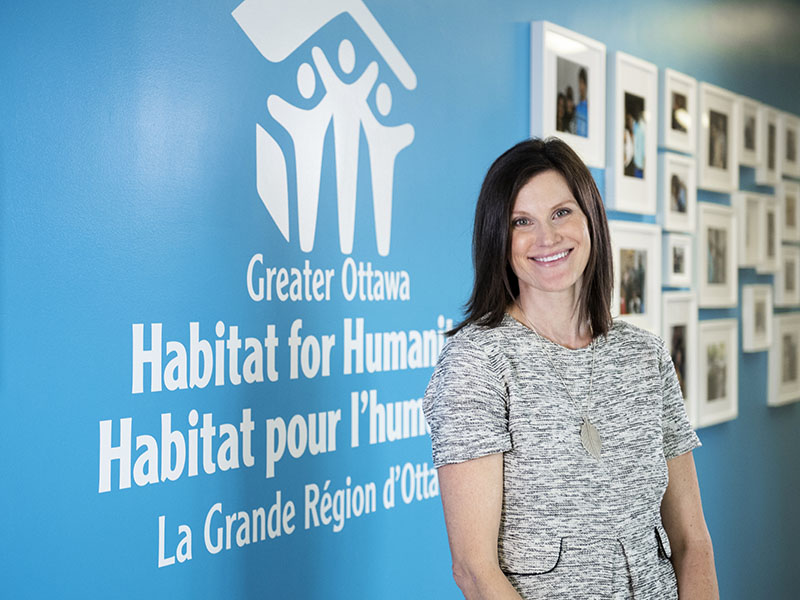Where the paths of commercial interest and positive social impact meet
Originally published in the Ottawa Citizen

Equipped with a finance degree, Alexis Ashworth entered the corporate world convinced she wanted to follow in her father’s footsteps by working in the investment sector. It, however, didn’t take Ashworth long to realize that something was missing. The work, she says, didn’t fulfil her. Leaving her investment job to work at a non-profit, she then decided to take her social and commercial interests a step further by turning to Carleton University’s Sprott School of Business where she enrolled in the Master of Business Administration (MBA) program with a specialization in international development management.
“That intersection of business and social good really interested me,” says Ashworth, who today is the CEO of Habitat for Humanity Greater Ottawa, a non-profit organization that brings communities together to help low income families enter market housing through affordable home ownership. “I had never seen an MBA specialty that involved social good.”
While Sprott’s International Development Management MBA is the only program of its kind in Canada, it isn’t the only program at the school to marry two traditionally opposed notions — commercial interest and positive impact. In fact, says the school’s dean, while Sprott is a full-service teaching and research business school that explores complex management issues through innovative programs, interdisciplinary research and collaborative partnerships, it takes an innovative approach to doing so.
“A few years ago, our students mounted the Sprott Love campaign to highlight our sense of community, connection, support and caring,” says Linda Schweitzer. “We continue to build that notion into our school as a whole. It isn’t anti-business to do good for society. You can do both.”
Ashworth echoes Schweitzer’s observations about Sprott’s approach. As an MBA candidate who had spent nine years in the working world, she says she was one of the older students in her cohort but immediately felt welcomed by staff and her peers. In the classroom, meanwhile, despite intense business studies that prepared her to confidently handle the intricacies and various duties of a CEO, she says professors still took the time to go beyond the typical MBA curriculum.
“In one class, we had to do a lot of reflection about life, work and past experiences, and that was powerful — to go back and write an essay about what certain points in your life meant,” says Ashworth. “That’s the thing about Sprott, the education is really useful and the professors are world class. It’s a beneficial combination.”
For more information on the Sprott School of Business, including an overview of programs and a list of upcoming events, visit https://sprott.carleton.ca